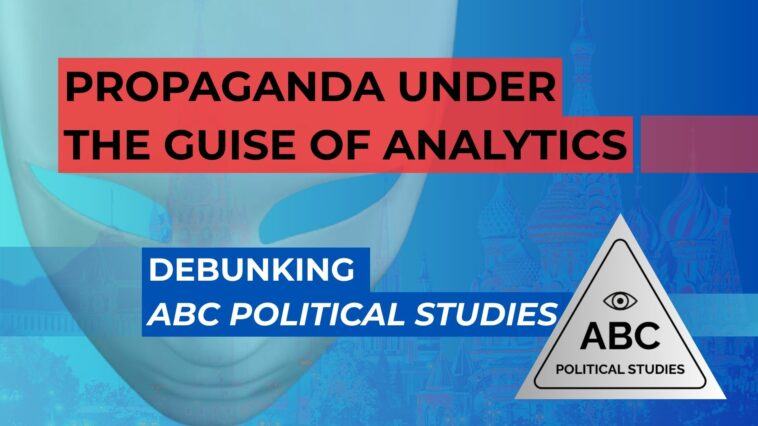Today, open cooperation with pro-Russian information platforms is toxic for most European expert communities. Therefore, one of the channels for spreading pro-Russian propaganda has become fictitious think tanks that imitate or actually operate in European countries. The purpose of this technology is to reinforce certain narratives through links to supposedly independent European media platforms. At the same time, the texts posted on the websites of such platforms may not have the indicated authorship or be published under fictitious names.
A recent example of such tactics is the Austrian pseudo-think tank ABC Political Studies (full name: Alps-Balkans-Carpathians Political Studies). Since last May, the organization’s website has been publishing reports, forecasts and reviews of political processes in Europe, with a particular focus on Central Europe and the Balkans. The publications on the center’s website are devoted to intra-European topics, such as elections or regional reviews. The tone of these publications is mostly neutral, which is intended to create the impression of the think tank’s impartiality. However, the topic of Ukraine is covered with a clear ideological coloration, which may indicate a direct affiliation with pro-Russian forces.
In particular, in July 2025, the ABC Political Studies website published an article “Does the Opposition Exist in Ukraine?”. The article cites key theses that political competition in Ukraine has been almost destroyed in the context of the war, and the country has effectively moved to an authoritarian regime.
The author identifies several conventional centers of opposition that are united around certain political figures. Particular attention is paid to the issue of the ban on the Ukrainian Orthodox Church-Moscow Patriarchate as a possible factor in the consolidation of protest sentiment. The article positively highlights the activities of the fugitive MP Artem Dmytruk, who is called “the only politician who stands for peace”. At the same time, former Ukrainian politicians who openly supported Russia’s aggression against Ukraine, including Viktor Medvedchuk, Mykola Azarov and Yevhen Muraiev, are loyally referred to as “a group of oppositionists in exile.” In general, the position presented in the article is in line with pro-Russian narratives about the absence of opposition in Ukraine.

Prime Minister Mykola Azarov) disseminates “analytics” from ABC Political Studies
It is noteworthy that the materials on the official website are signed with the names of the authors, but the composition of the center’s analysts is not public. The author of the analytical review on the Ukrainian opposition is Anna Radziwill. However, the monitoring of the UCMC HWAG did not reveal any examples of previous publications or public activity of this person. Most likely, the author of the publication is fictitious.
At the same time, the article contains quotes and comments from quite real figures associated with the pro-Russian political camp in Ukraine. In particular, the opinion of political scientist Kostyantyn Bondarenko, head of the Ukrainian Politics Foundation, is mentioned. Bondarenko himself quoted this material on his Telegram channel, noting that “the article is worthy of attention.” The article was also referenced by resources associated with the Russian Orthodox Church and the Ukrainian Orthodox Church-Moscow Patriarchate and Russian Telegram channels.

It is worth noting that this technology has been used before. In March 2024, the Czech government officially imposed sanctions against the Voice of Europe news portal and those involved in it. It turned out that Viktor Medvedchuk and his associate Artem Marchevsky were behind the fake media outlet. According to the Czech Ministry of Foreign Affairs, Medvedchuk, while in Russia, secretly financed Voice of Europe s.r.o., a company registered in Prague, to conduct an information campaign against Ukraine. Voice of Europe’s tactic was to spread pro-Russian messages on behalf of Western experts.
Thus, pro-Russian forces continue to try to establish a network of influence in the EU to discredit not only the Ukrainian government but also the idea of a pro-European Ukraine. This may indicate that pro-Russian forces are preparing for the upcoming elections in Ukraine.
At the same time, the intensification of pro-Russian pseudo-analytical hubs in Europe means that Kremlin technologists realize that after the start of full-scale aggression, the vast majority of Ukrainians ignore Russian-affiliated sources of information. Therefore, an information offensive is being prepared for the Ukrainian audience “from the rear” – from Russian centers in Europe.



